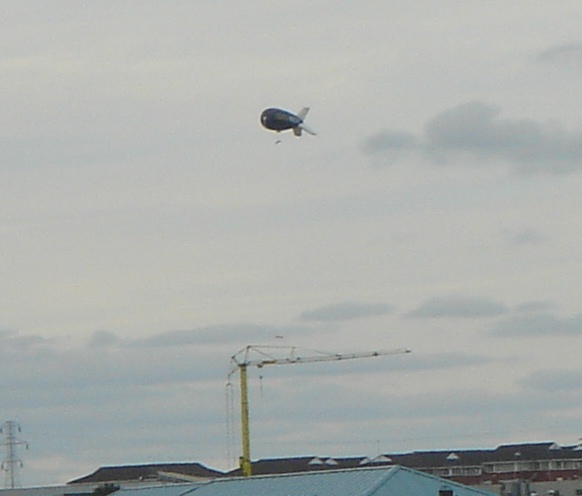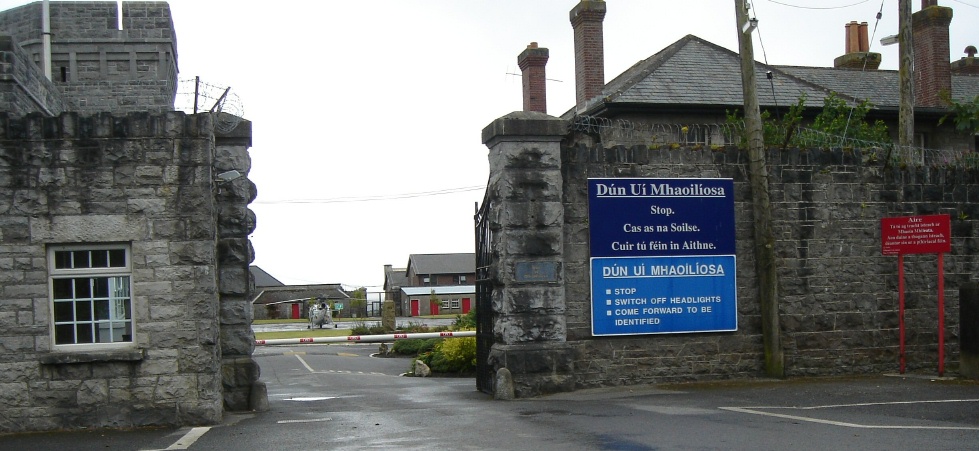7
« on: December 16, 2004, 07:06:07 pm »
Life Magazine, Sunday Independent 12/12/04
Captain Jim Gavin, 33, is chief flying instructor of the Flying Training School in the Irish Air Corps College at Baldonnel Casement Aerodrome. He is from Clondalkin and lives with his wife Jennifer, an air hostess with Aer Lingus, in the centre of Dublin
I get up at about 7am. I'm not too bad at that hour, because with the military you're regimented to get up in the morning. All pilots will have two alarm clocks, in case one doesn't work. In the flying school, you have to be very precise with time - there's no clock five minutes fast. But my wife does that, which kind of irritates me a bit. I can't get my head around that concept. She puts it five minutes fast, so she thinks she's five
minutes early, but invariably she's late anyway, so it doesn't seem to work.
I'm first up in the morning. I have tea, toast, cereal and some fruit. I shave every morning. Personal appearance and hygiene is important in the military context. You become accustomed to it after so many years. Before, I would have had longer hair and my mother would have done the cleaning for me, but you
learn to be self-sustaining.
I go to work in civvies and change into my uniform work. I'd polish my boots there. As the chief flying instructor, I have to schedule the flights for the day. We work on a two week programme, so we have an integrated training plan. We teach the pilots how to fly - how to climb, how to descend. Then we teach them aerobatics - loops and rolls, spinning the aircraft, stalling the aircraft. How control the aircraft at minimum speed, at maximum speed, and then we'll have some navigational exercises where they'll use a map and navigate themselves around the country. If they've never flown before, they'll need to fly six hours in aPC9 simulator. This is a one-to-one representation of what's actually the cockpit. So the pilot would climb in, get his G-suit, his helmet and his mask on. The G- suit is like a pair of pants with a hose on it which connects to the pneumatic system on the aircraft. In our Pilatus PC9 aircraft it can sustain up to plus 7G and down to minus 4G.
Every year we take in six cadets. All it requires is the basic standard for university education -3CIs and a European language. We look for well- rounded individuals who like to work in a team environment and have good leadership skills. They're sent down tothe Curragh for eight months and introduced to basic military life – foot drills, section tactics, military manoeuvres and some firearms. When they come back, they're itching to fly.
We teach Airline 1ransport Pilot Licensing, which is the highest level of theoretical knowledge that any pilot can study. The exams are tough enough but they've all been selected to pass. We haven't yet had a student who has failed. With the cadets' programme they stay on the aerodrome throughout the year. They're let out one night a week with a curfew at 23.59 hours, and they're off at weekends, but they must report back to base at 23.59 hours on Sunday.
We've very strict guidelines in the military about what you can drink. There's no tolerance of drugs in the Defence Forces, and if it comes up you're probably looking at a discharge. It can't be tolerated, particularly where there are weapons aircraft. As for flying, 12 hours before a flight you're allowed half a glass of wine with a meal. There's no deviation from this.
Most days I'll teach in the mornings, have lunch around 12.30,and then in the afternoons I will go flying with the students, to see how they're doing. Before they fly, we ask if they're fit to fly. This doesn't just mean are they physically fit. It means are they fit mentally, and not we don't want them flying. They might have a bit of trouble with the girlfriend or someone in their family is sick, and if they're not on form they're no benefit to me.
We concentrate highly on airmanship - that's the mental process pre-flight,during the flight and post-flight. Not only do we want good stick-pilots, need them to have a good mental capacity as well. In an emergency don't jump in and start pulling switches and moving levers. Instead we want them to analyse the situation, prioritise and then act.
I grew up in Clondalkin, close to the aerodrome, and I was always fascinated by planes. The flight path to one of the approaches was over my school, and on the final approach the aircraft used to turn over my house. As a boy I had toy planes and mother bought me all the flight magazines. I liked the military camaraderie you see in films, and I enjoyed watching the Silver Swallows doing formation flying. They were spectacular. I thought that was where I'd get abuzz, and when I joined the Air Corps I wasn't disappointed.
If you want to fly an aircraft and get comfortably paid, the money is in commercial aviation, but we're here for a purpose, to serve the State. It's probably an old concept which has been lost in the economic climate. We're here to serve the country and proud to do so. There's a sense of togetherness about it. I still get a great buzz out of flying. If you're at the top of your game you feel at one with the aircraft. There are some lovely cloud formations, cumulus in particular -they're like cotton wool and beautiful to fly around. You get a great sense of freedom. It could be foggy in Baldonnel but above the clouds there's none of that. As we say, the sun always shines in our office.
In conversation with Ciara Dwyer








